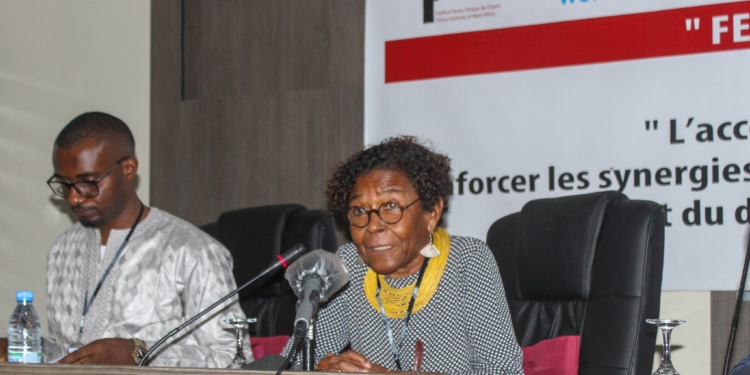Diana Senghor, Director, Panos Institute for West Africa has disclosed that all information regarding the COVID-19 pandemic across West African countries are not gender specific.
Speaking during the opening session of the regional colloquium on Access to Information and Women organized by Panos Institute, Senghor stressed that the information captured by the Ministries of Health across the West African countries are not
Senghor explained that some of the reasons for lack of gender focused information about the pandemic was because of the monopoly of dissemination of information by the government.
She also raised concerns about the gender disaggregation of people who are COVID-19 positive, nothing that it is an illustration to show that women are not captured in information regarding the pandemic.
She thereafter called for the deliberate engagement of women in programmes and activities of government which can be possible through access to information.
“Women should be engaged, we need to have gender sensitive statistics and women should access information without which they will not be able to contribute actively in the society.”
She added that, “COVID-19 is an opportunity to put women at the core and ensure they have access to information.”
The Panos Director also reiterated that Access to Information is an essential component of freedom of expression adding that Panos has trained over 500 journalists in the practice of gender sensitive journalism.
On his part, Mamadou Sadiou, Secretary of State, Ministry of Justice, Senegal said access to information is a fundamental right of every citizen regardless of their gender and every government must be committed to ensuring that citizens have unhindered access to information.
Sadiou also explained that the Senegalese government has been working effortlessly to ensure that the country has a specific law on access to information.
Also speaking at the opening session, Michel Kenmoe, Technical Adviser, UNESCO, Senegal said It is necessary to take into account certain realities such as cultural constraints and religion so that the adoption of the law on access to information is not discriminatory.

